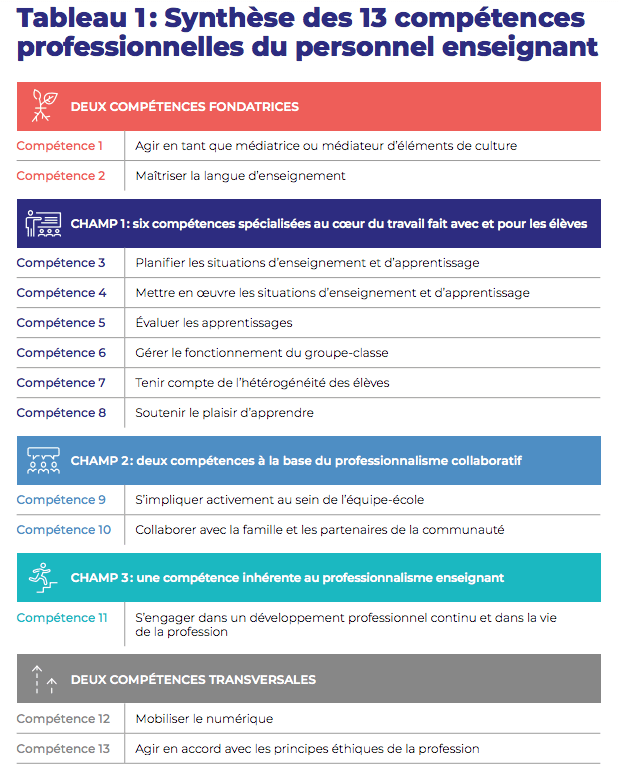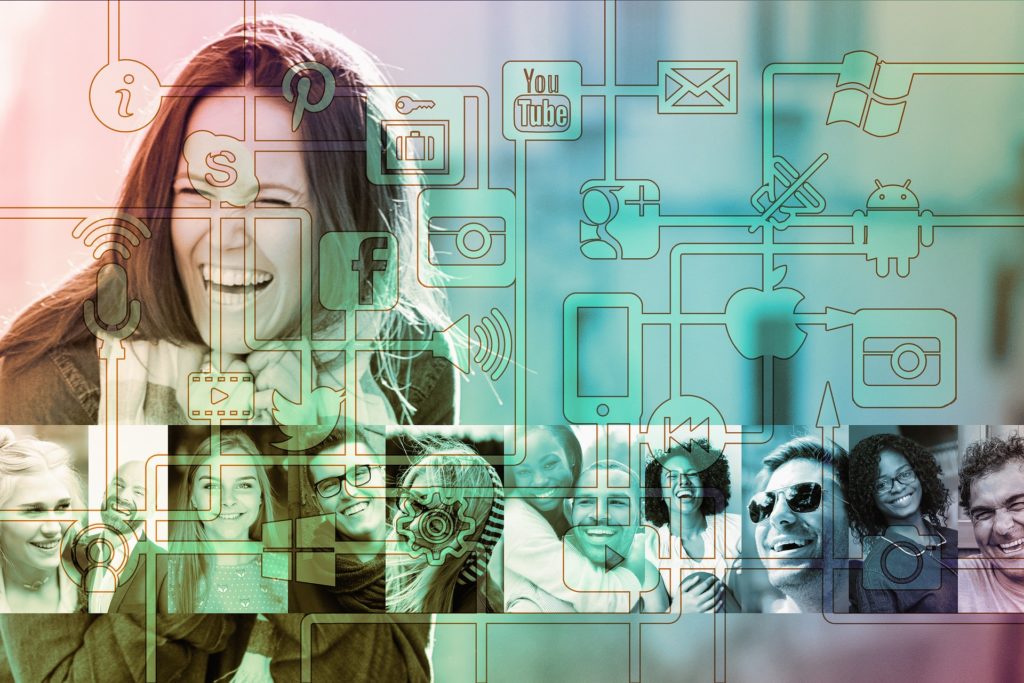La deuxième édition du Référentiel de compétences professionnelles de la profession enseignante vise à orienter les enseignant(e)s dans la poursuite de leur développement professionnel et à guider la formation des futurs maîtres.
La nouvelle version du Référentiel compte 13 compétences professionnelles à maîtriser. Pour la première fois, la compétence numérique est explicitement mentionnée, plus précisément comme compétence transversale, ce qui signifie qu’elle devrait se refléter dans chacune des autres compétences.

D’entrée de jeu, on peut lire dans le document « Une chose semble certaine : l’utilisation du numérique, avec tout ce qu’elle peut comporter de positif, pose aussi des défis et pénètre l’ensemble du monde scolaire, soulevant ainsi pour le personnel enseignant des questions qui relèvent de la citoyenneté à l’ère du numérique. La formation du personnel enseignant doit prendre en considération les enjeux induits par l’utilisation du numérique. L’éducation au numérique, conçue non seulement comme une technologie, mais aussi comme une forme de littératie et une pratique sociale, représente désormais une responsabilité importante de l’école et du personnel enseignant, ainsi que le décrit le Cadre de référence de la compétence numérique (MEES, 2019d) ».
Mobiliser le numérique
La compétence 12 se lit comme suit « Mobiliser le numérique – Utiliser le numérique afin d’en faire bénéficier les élèves ainsi que l’ensemble des actrices et acteurs éducatifs ». Sa description fait référence au fait que cette compétence « excède les habiletés techniques requises pour utiliser des outils numériques en classe à des fins pédagogiques » et que « l’utilisation des technologies numériques s’imbrique dans la totalité des pratiques et des productions culturelles ». Les 12 dimensions du Cadre de référence de la compétence numérique sont ainsi mentionnées.
Le développement de cette compétence « suppose l’adoption, de la part des enseignantes et des enseignants, d’une posture critique et avisée au regard de l’utilisation des outils numériques en contexte scolaire ». Il est précisé que l’enseignant doit encourager les élèves à développer « une utilisation créative et appropriée des outils technologiques en les sensibilisant notamment à la pertinence des sources, aux notions de confidentialité et de consentement de même qu’aux répercussions de l’utilisation de ces outils sur les relations sociales et la santé psychologique et physique ».
Finalement, le document souligne l’importance de plus en plus grande des groupes et réseaux d’échanges entre enseignants sur le Web, comme les groupes Facebook et les discussions via Twitter. « Tout cela montre que l’activité du personnel enseignant est devenue une source incontournable pour son apprentissage professionnel et le développement de ses compétences ».
On peut consulter le document complet en ligne.






